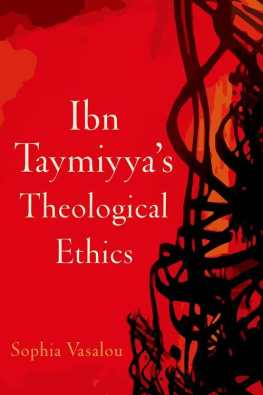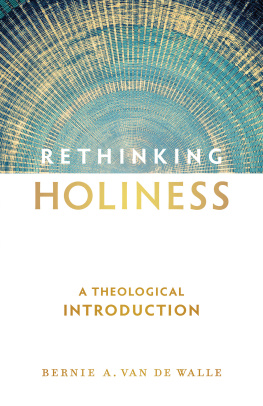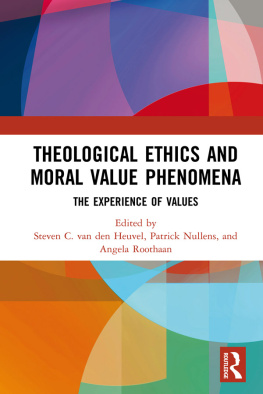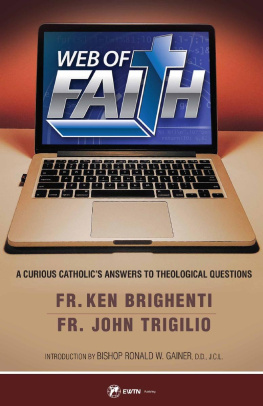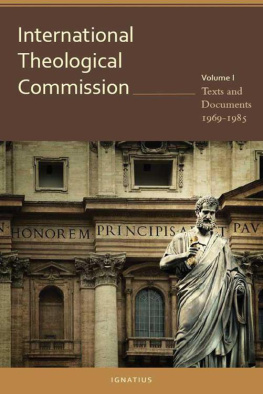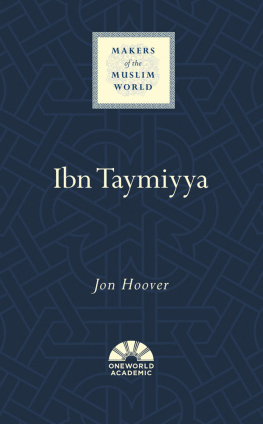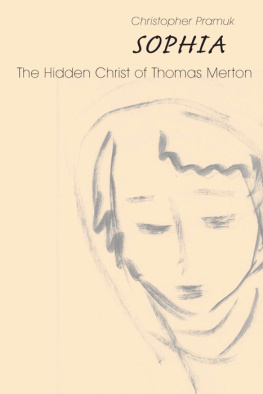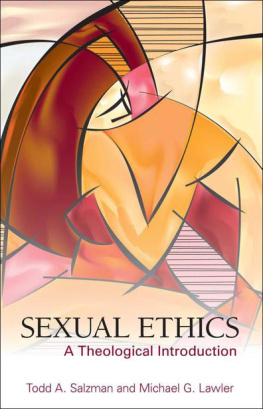Sophia Vasalou - Ibn Taymiyyas Theological Ethics
Here you can read online Sophia Vasalou - Ibn Taymiyyas Theological Ethics full text of the book (entire story) in english for free. Download pdf and epub, get meaning, cover and reviews about this ebook. year: 2015, publisher: Oxford University Press, genre: Romance novel. Description of the work, (preface) as well as reviews are available. Best literature library LitArk.com created for fans of good reading and offers a wide selection of genres:
Romance novel
Science fiction
Adventure
Detective
Science
History
Home and family
Prose
Art
Politics
Computer
Non-fiction
Religion
Business
Children
Humor
Choose a favorite category and find really read worthwhile books. Enjoy immersion in the world of imagination, feel the emotions of the characters or learn something new for yourself, make an fascinating discovery.
- Book:Ibn Taymiyyas Theological Ethics
- Author:
- Publisher:Oxford University Press
- Genre:
- Year:2015
- Rating:3 / 5
- Favourites:Add to favourites
- Your mark:
- 60
- 1
- 2
- 3
- 4
- 5
Ibn Taymiyyas Theological Ethics: summary, description and annotation
We offer to read an annotation, description, summary or preface (depends on what the author of the book "Ibn Taymiyyas Theological Ethics" wrote himself). If you haven't found the necessary information about the book — write in the comments, we will try to find it.
Ibn Taymiyyas Theological Ethics — read online for free the complete book (whole text) full work
Below is the text of the book, divided by pages. System saving the place of the last page read, allows you to conveniently read the book "Ibn Taymiyyas Theological Ethics" online for free, without having to search again every time where you left off. Put a bookmark, and you can go to the page where you finished reading at any time.
Font size:
Interval:
Bookmark:

SOPHIA VASALOU


Oxford University Press is a department of the University of Oxford. It furthers the Universitys objective of excellence in research, scholarship, and education by publishing worldwide.
OxfordNew York
AucklandCape TownDar es SalaamHong KongKarachi
Kuala LumpurMadridMelbourneMexico CityNairobi
New DelhiShanghaiTaipeiToronto
With offices in
ArgentinaAustriaBrazilChileCzech RepublicFranceGreece
GuatemalaHungaryItalyJapanPolandPortugalSingapore
South KoreaSwitzerlandThailandTurkeyUkraineVietnam
Oxford is a registered trademark of Oxford University Press in the UK and certain other countries.
Published in the United States of America by
Oxford University Press
198 Madison Avenue, New York, NY 10016
Oxford University Press 2016
All rights reserved. No part of this publication may be reproduced, stored in a retrieval system, or transmitted, in any form or by any means, without the prior permission in writing of Oxford University Press, or as expressly permitted by law, by license, or under terms agreed with the appropriate reproduction rights organization. Inquiries concerning reproduction outside the scope of the above should be sent to the Rights Department, Oxford University Press, at the address above.
You must not circulate this work in any other form and you must impose this same condition on any acquirer.
Library of Congress Cataloging-in-Publication Data
Vasalou, Sophia.
Ibn Taymiyyas theological ethics / Sophia Vasalou.
pages cm
Includes bibliographical references and index.
ISBN 9780199397839 (hardback: alk. paper)
eISBN 9780190493899
1.Ibn Taymiyah, Ahmad ibn Abd al-Halim, 12631328.2.Muslim scholarsBiography. 3.Islamic ethics.I.Title.
BP80.I29V37 2016
297.5092dc23
2015004821
To my family
THIS BOOKS BIGGESTLITERALLY life-givingdebt must be to Gregor Schwarb, who nearly five years ago refused to take no for an answer when inviting me to take part in a meeting of the ERC project Rediscovering Theological Rationalism in the Medieval World of Islam and gave me a pretext for responding to the curiosity that my still cursory readings of Ibn Taymiyya had excited in me. I set sail for the Collected Fatwas and was soon hooked on the thread that would lead me through its mazes. That meeting was one of several events that would provide me with occasions for developing and refining my ideas, and I am grateful to the organizers and participants of conferences in Istanbul, Marburg, Gttingen, Edinburgh, and London for these opportunities over the past few years. Materially, this book owes a debt to several sources. Begun during my term as a teaching fellow at the European College of Liberal Arts in Berlin and during the sunset of my junior research fellowship at Gonville and Caius College in Cambridge, it was then made possible by a grant from the Deutscher Akademischer Austausch Dienst in 2011 and even more substantially by a research fellowship at the Orient Institut in Beirut in 2012. The final stage of the writing of this book took place during a research fellowship at Oxford Brookes University in 2014. I am grateful for all these forms of support.
Among the conversations that stand in the background of this book, the one that did the most to catalyze its reflections at an early stage was my exchange with Frank Griffel, who generously shared his insights and his better knowledge of many of the textual sources that entered my paper trail, and then also critically read an earlier draft of this manuscript from cover to cover. This book is deeply indebted to his close reading, as well as to the invaluable criticisms of my two readers for Oxford University Press, without which it simply would not have assumed its current shape. (For its shortcomings, it goes without saying, they stand absolved.) All other debts are to my close family, who have their own reasons to be rejoicing that this book is finally complete. I would also like to thank my editor, Theo Calderara, for his support and his efficiency in leading the book through the Press.
AMONG THE MANY messages Muslims have put out in engaging their religious faith in the contemporary context, there is one that stands out with special tenacity. Al-Islm dn al-fira, it runs. Islam is the religion of our original nature. It is a catchphrase that has grown to be ubiquitous in the contemporary setting, appearing in a broad spectrum of writings, particularly popular ones, among authors who might otherwise be divided by important differences in intellectual orientation. We hear it among stakeholders of more traditional educational environments. We hear it among members of the broad Islamist movement and others who stand for the new religious approaches spawned by the circumstances of modernity. And when we hear it, its sound is that of a refrain whose presence has come to be so pervasive in the acoustic field that it no longer invites pause. Take the tract by the late Saudi cleric Muammad ibn li al-Uthaymn, for example, running under the title uqq daat ilayh al-fira wa-qarrarath al-shara (Rights Demanded by Our Original Nature and Confirmed by the Sharia), which offers an enumeration of different kinds of rights filed under familiar headings: the rights of spouses, of children, of neighbors; the rights of God. More remarkable than these contents is the fact that the language of fira, having appeared in the title, never once appears in the body of the text itself, its function apparently complete in this elliptical gesture and wholly comprehensible (we may suppose) to its readers.
And toward what, one may ask, might this gesture be? Considered more closely, the notion of fira here and elsewhere would seem to point us to a particular matrix of relationships or correspondences. At its heart, and most immediately, lies the claim of a correspondence between the demands of our nature and the demands and principles of the Islamic faith. It is a message of harmony that stands out, for example, in the characteristic expression found in a recent popular work on ethics by the prominent Damascene scholar of law Wahba al-Zuayl: Islam does not conflict with human nature or innate desires because it is the religion of our original nature [fira] and the religion of moderation. We may notice that al-Qaraw here accentuates considerations of utility in explaining this correspondence; al-Uthaymn, on the other hand, had sounded the deontological accent with the notion (aqq) that figured as his organizing term.
It is this twofold correspondenceconnecting the commands of the Islamic faith with our own nature, on the one hand, and the nature of actions, on the otherthat would appear to underlie the pervasive catchphrase as we find it. And with this matrix out in the open, now, those considering this intellectual scene against the classical theological tradition might respond with a certain sense of surprise. For certainly the notion of fira as such had hardly been a foreign one in the Islamic tradition, given the deep scriptural roots that grounded it. The notion of fira (the natural disposition or constitution, our original nature) makes a key appearance in the Quran in the verse that reads: So set your face to the religion, a man of pure faith [
Font size:
Interval:
Bookmark:
Similar books «Ibn Taymiyyas Theological Ethics»
Look at similar books to Ibn Taymiyyas Theological Ethics. We have selected literature similar in name and meaning in the hope of providing readers with more options to find new, interesting, not yet read works.
Discussion, reviews of the book Ibn Taymiyyas Theological Ethics and just readers' own opinions. Leave your comments, write what you think about the work, its meaning or the main characters. Specify what exactly you liked and what you didn't like, and why you think so.

